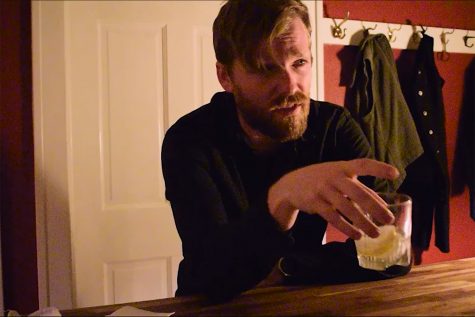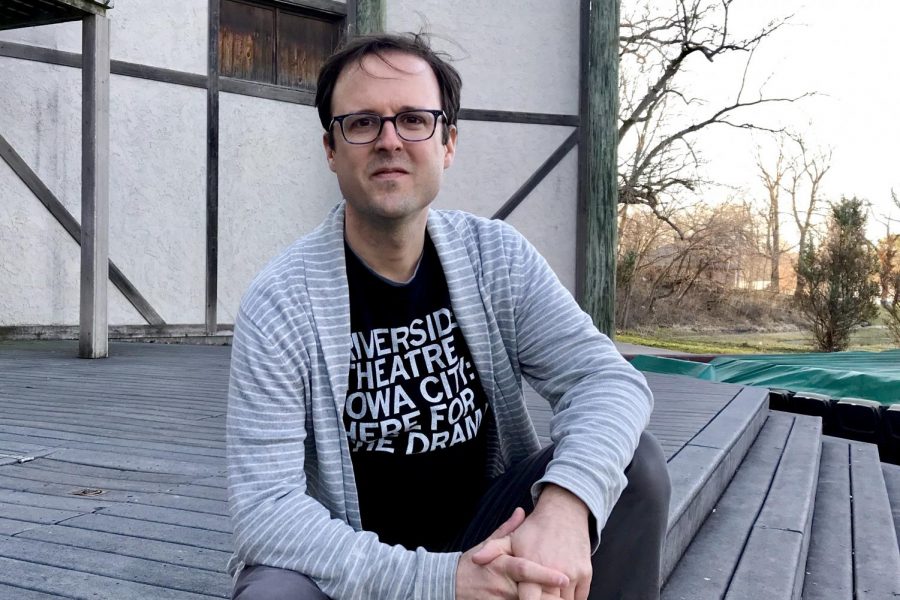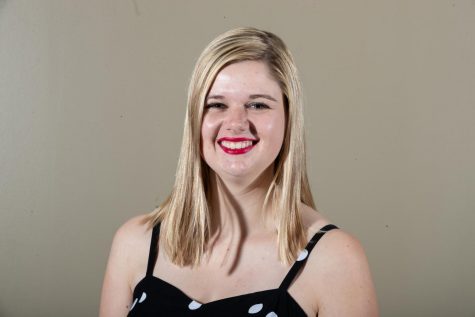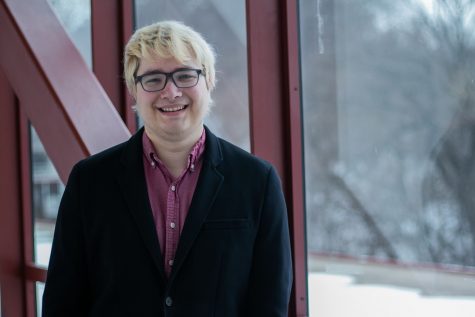Riverside Theater’s ’30 Days of Shakespeare’ video series brings theatre to social media
With theaters closed due to the current pandemic, Riverside Theater sought to bring the theater spirit into people’s homes with a series of video monologues posted each day in celebration of Shakespeare’s 456th birthday.
April 5, 2020
While local theaters are closed due to the COVID-19 pandemic, Riverside Theater has brought about an initiative to bring theater back to Iowa City in a new way with their 30 Days of Shakespeare video series, which began April 1 and will be posted every day throughout the month.
Producing Artistic Director Adam Knight kicked off the series with a performance of Henry V’s prologue. Since then, a different Riverside artist has performed a Shakespearean monologue that has been posted on Riverside’s Facebook page and Instagram.
“What does it mean to be a theater when you can’t have an audience?” Knight said. “Riverside is about bringing people together in an instant space to listen to a story and when we can’t do that, we have to find different ways to keep theater alive, to keep the spoken language live, and especially to find ways so that the great talents in the corridor can continue to inspire and engage with the greater community.”
Patrick Du Laney, who has performed for Riverside since 2008 and was performing in Broadway’s Harry Potter and the Cursed Child before Broadway announced it would suspend all performances effective immediately on March 12, performed a monologue from Macbeth. Du Laney sees the series of videos as another example of how people seek escapism.
“If there’s anything that this has demonstrated, it’s that people need the arts more than ever,” Du Laney said. “We can be a small part of that. To help our community get through — it is incredibly important and an honor to be a part of.”
Knight believed that creating the videos in “bite-size” increments made them more appealing. He even tasked the actors with making the performances contemporary to attract a larger audience.
“We can’t compete with Netflix,” Knight said. “What we can do is showcase the talent that is here. Part of the assignment for all the actors was to really make this piece their own. Not to try to recreate theater or recreate the exact setting of the speech, but to recreate it for the now.”
RELATED: 100 days of Decameron offer virtual book club amid pandemic
Aaron Weiner, an Iowa City native who has been involved with Riverside since he was 19 years old, is part of the monologue line-up and sees this video series as a reminder to people in quarantine that theater continues to persist.

“We’re still here, we’re still working, we’re still playing,” Weiner said. “Even though we don’t have that same communal aspect of going to the theater, we’re still able to provide that experience to people.”
The video series is also made in anticipation of Riverside’s “Free Shakespeare in Lower City Park,” an annual event that takes place in an outside theater modeled after the Globe Theater in London. Their production of The Winter’s Tale is currently scheduled for June 12, but Knight and company are prepared to push it back.
“Once we come out of this, Free Shakespeare seems like the perfect event,” Knight said. “It’s outside and it will bring our community together after this major time of separation.”
Weiner, who has participated in past Shakespeare In The Park events, sees the iconic playwright’s work as tangible for theater-goers.
“Shakespeare’s themes are pretty universal,” Weiner said. “It’s something that culturally has been ingrained in the last hundred years, and it’s something people recognize and can relate to even if sometimes the language can be a little tough to wave through.”
Knight sees the theater experience to be hyper-local, essential for its ability to bring a community together. With theaters closed, Knight hopes the 30-day video series fulfills the local and communal gap left by the closing of theaters.
“Moments like these takes that away from us; takes away that communal experience,” Knight said. “Part of why this hyper-local video series is important to me is because it’s reminding us who our community is.”


















